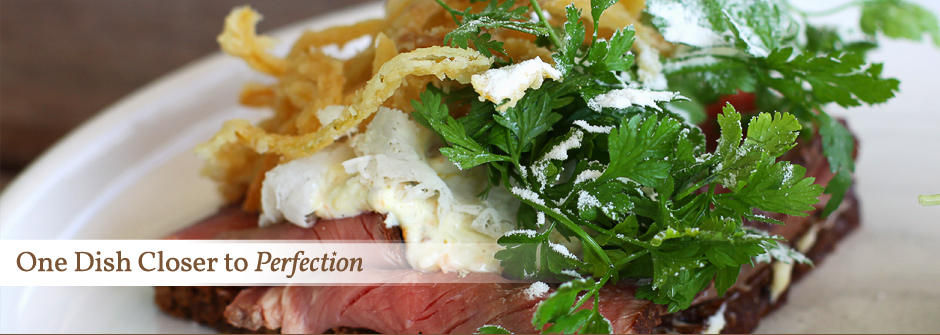Warren Belasco on the American food chain
 Saturday, March 2, 2013 at 3:15PM
Saturday, March 2, 2013 at 3:15PM  "I tell students that eating is more than a private, physiological act. It connects us to people and places all over the world – past, present and future. As an example, I invite them to think about the simple act of toasting and eating a slice of packaged white bread. Growing that wheat helped some Midwestern farmers pay their bills while also polluting their water supply with fertilizers and pesticides, eroding their soil, and, if they used irrigation, lowering their region's water table. The land used to grow the wheat had been acquired – or seized – long ago from other living creatures, human or otherwise, and converted to growing a grass that had originated as a weed in the Middle East and had been gradually domesticated and improved by countless generations of gatherers, peasants, farmers, and, only just recently scientists. Turning wheat into bread required the coordinated efforts of numerous companies specializing in food transportation, storage, processing, and marketing, as well as others involved in manufacturing and selling farming equipment.
"I tell students that eating is more than a private, physiological act. It connects us to people and places all over the world – past, present and future. As an example, I invite them to think about the simple act of toasting and eating a slice of packaged white bread. Growing that wheat helped some Midwestern farmers pay their bills while also polluting their water supply with fertilizers and pesticides, eroding their soil, and, if they used irrigation, lowering their region's water table. The land used to grow the wheat had been acquired – or seized – long ago from other living creatures, human or otherwise, and converted to growing a grass that had originated as a weed in the Middle East and had been gradually domesticated and improved by countless generations of gatherers, peasants, farmers, and, only just recently scientists. Turning wheat into bread required the coordinated efforts of numerous companies specializing in food transportation, storage, processing, and marketing, as well as others involved in manufacturing and selling farming equipment.
By extending the bread's shelf life, the plastic wrapping lowered costs and increased profits for corporate processors, distributors and supermarkets. That packaging also helped to put thousands of neighbourhood bakers out of business. Making the plastic from petrochemicals may have helped to foul Cancer Alley in Louisiana and, if the oil came from the Middle East, may have helped to pay for the reconstruction of Kuwait, which was destroyed several years ago by an Iraqi army also financed by petrochemical bread wrappers. The copper in the toaster and electrical wiring may have been mined during the Pinochet dictatorship in Chile or Mobutu's Zaire or Bruce Babbitt's Arizona. The electricity itself probably came from a power plant burning coal, a source of black lung, acid rain, and global warming. And so on... All of this – and more – was involved in making toast. And we have not even mentioned the butter and jam!"
Warren Belasco in The Cultural Politics of Food and Eating: A Reader (2005:217)
 Vix |
Vix |  2 Comments |
2 Comments |  Excerpt
Excerpt 
Reader Comments (2)
omigod! doesn't bear thinking about !
Just read this again. After reading your food anthropology articles I appreciate it so much more . As a piece of writing it is very powerful. It is a compelling and accurate indictment of the global food industry, and of western civilisation but it's clever because it starts off benign. It seems as if it will be a feel good article about food connecting people , so the impact of the catalogue of exploitation is all the more shocking.